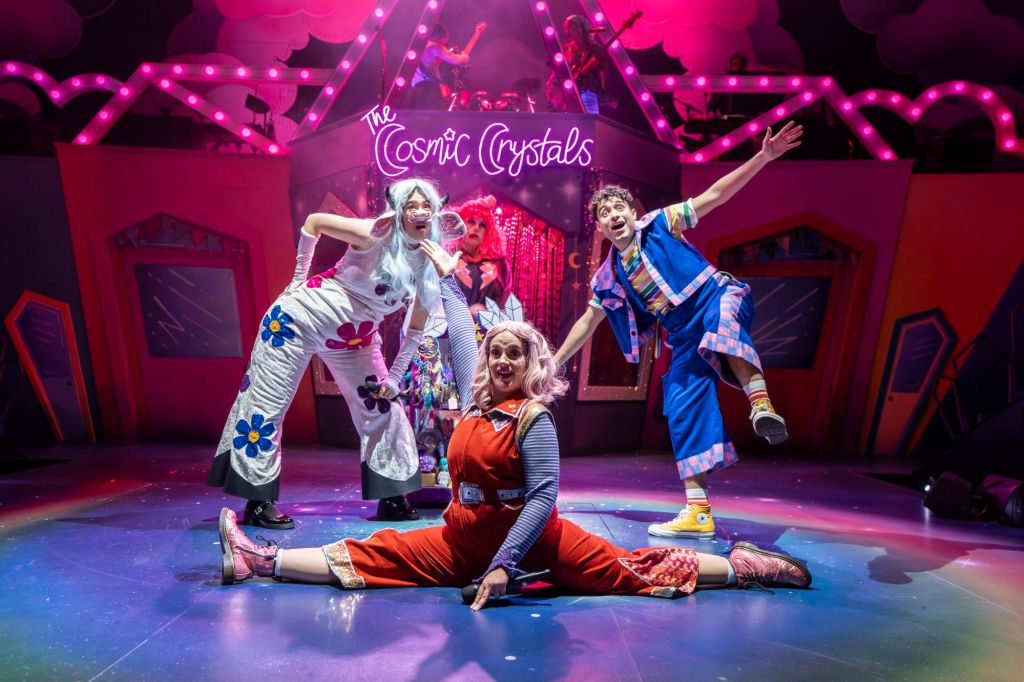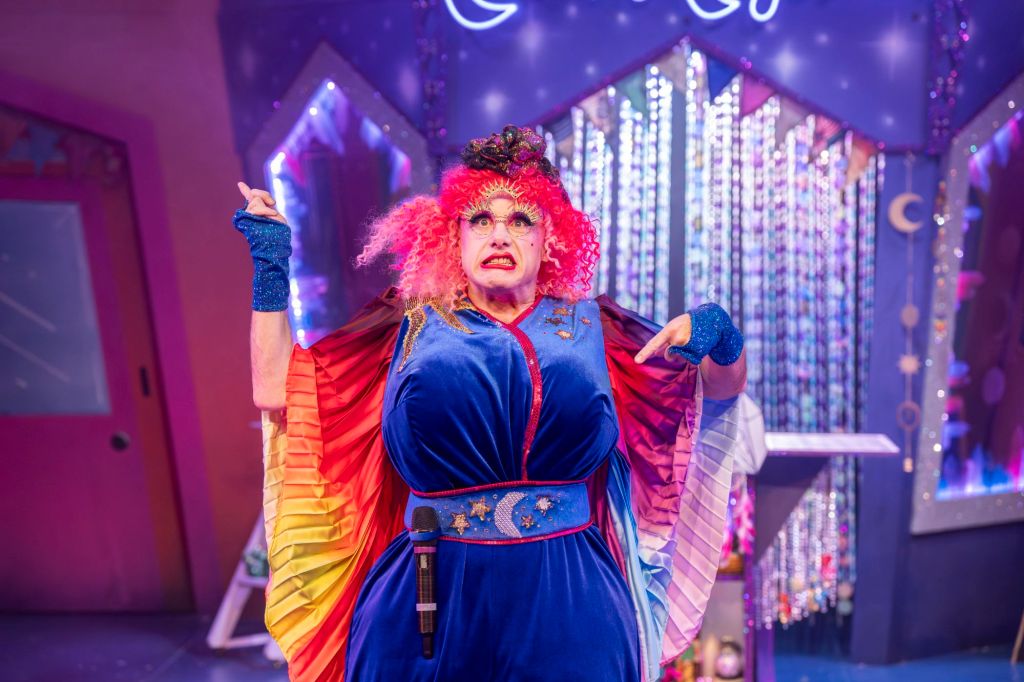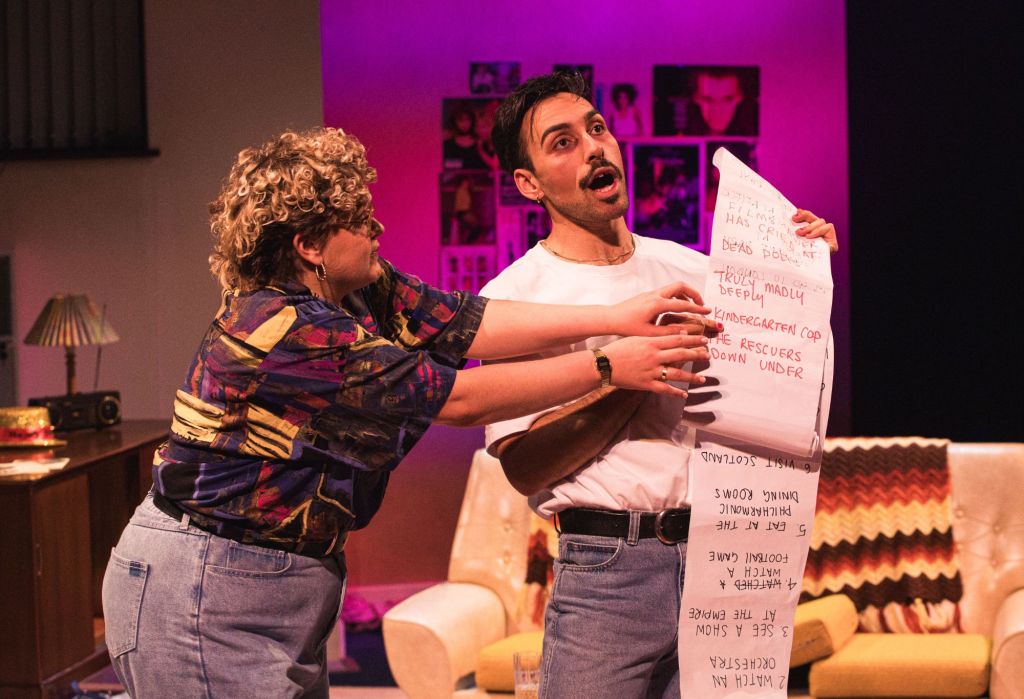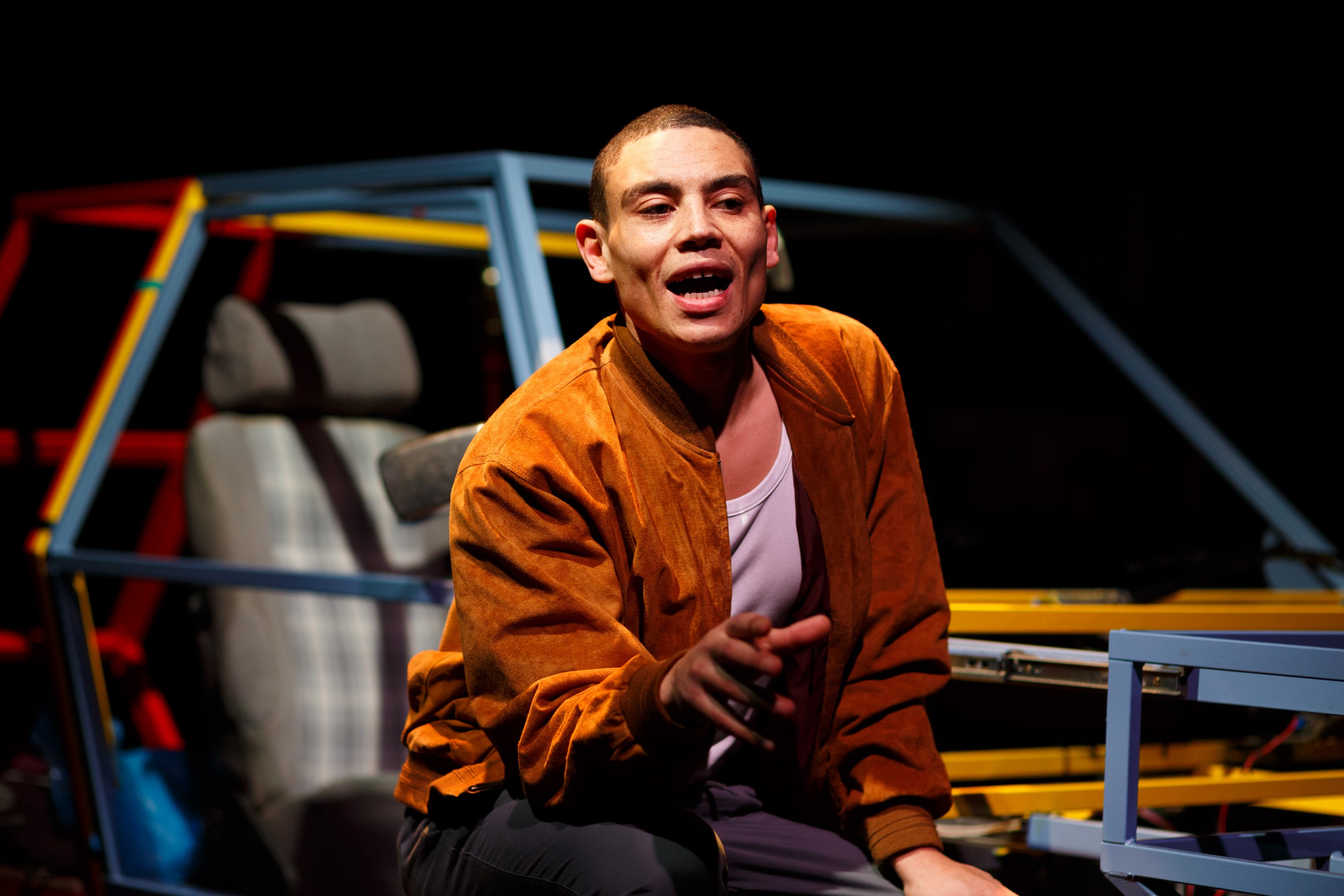
Written by Chloe Moss
Directed by Kash Arshad
LIVERPOOL EVERYMAN
Review: Jack and the Beanstalk at Liverpool Everyman – a riotous, rebellious beanstalk bonanza.
Liverpool Everyman‘s annual rock ’n’ roll panto has always been more punk spirit than polished pageant, and Jack and the Beanstalk is no exception. In fact, this year’s offering may be the purest distillation yet of the theatre’s trademark magic: equal parts gleeful anarchy, local in-jokes, powerhouse vocals and the kind of good-natured silliness that could thaw even the frostiest Merseyside December.
From the moment the fabulous Adam Keast bursts onstage as Fairy Spacecake, it’s clear we’re in very safe and very outrageous hands. This is a show that doesn’t so much break the fourth wall as tickle it, tease it, and invite it on a night out down Hardman Street. The ensemble, every one of them actor-musician dynamos, bounce between instruments with the casual swagger of people who can absolutely shred a guitar solo and belt out a big ballad without breaking a sweat despite the non breathable costumes and the plethora of wigs.

Image Credit: Ellie Kurtz
Malek Alkoni as Jack our hero is a hapless dreamer who initially seems less at home in panto than his comrades but gains confidence as the show progresses. Liam Tobin is the Everyman panto dame, Vera, who turns up in outfits loud enough to be seen from space and delivers zinger after zinger with sharp comic precision. Amy Bastani is delightful as Jill and delivers some great vocals and harmonies. Even Daisy the cow (Elaine Hua Jones) has a scene-stealing number clad in a fabulous costume by Katie Scott. The ubiquitous star is Everyman panto stalwart Adam Keast who is a master of sly innuendo, always delivered with insouciant twinkly, charm.
The script, as ever, is a glorious mash-up: camp, cheeky, locally flavoured and just the right shade of ridiculous. You’ll get your beans and your beanstalk, sure, but you’ll also get a surprisingly sharp political aside, a slapstick chase sequence, and a musical playlist so crowd-pleasing it should probably come with a government warning. Expect everything from disco to pop-punk to a power ballad so earnest it might genuinely move you.
What makes the Everyman panto special isn’t just the gags or the tunes, it’s the warmth. The company radiates joy, the audience throws it back, and before you know it you’re on your feet, shouting, singing, and momentarily forgetting that you’re a fully grown adult who came in for “something seasonal” and is now screaming encouragement at a quirky Goose.
The set ramps up the fun with a beanstalk ascent that’s impressively bonkers, more DIY-in-the-best-way than Disney, and all the better for it. And when the giant finally appears… well, let’s just say the Designer Katie Scott clearly had a very good time and the result is delightfully unhinged.
In short: Jack and the Beanstalk at Liverpool Everyman is a raucous, big-hearted triumph that is exactly the kind of festive escapism that reminds you why pantomime, done properly and with plenty of swagger, remains one of theatre’s greatest communal pleasures. A giant of a good time.














